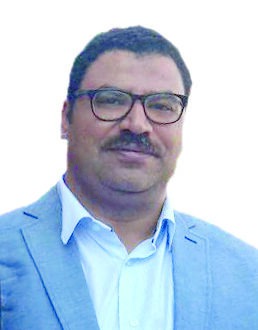With the world once again coming to a crossroads, a virtual BRICS summit hosted by Beijing last month asserted that co-operation and multilateralism are essential routes for developing countries to navigate the currently turbulent economic and geopolitical scene.
The summit, BRICS’14th, produced the Beijing Declaration, in which member-states (Brazil, Russia, India, China, and South Africa) reiterated their commitment to multilateralism, emphasised that global governance should be made more inclusive, representative and participatory, and vowed to uphold international law and the central role of the United Nations in the international system.
The members recalled the BRICS spirit, which they said is based on solidarity, co-operation, and closer people-to-people exchanges, which has led to a series of significant outcomes.
In the Declaration, the group members also urged major developed countries to adopt responsible economic policies while managing policy spillovers to avoid severe impacts on developing countries.
The group stressed the importance of global economic governance for countries to ensure sustainable development and underlined their support for an open, transparent, inclusive, non-discriminatory and rules-based multilateral trading system.
Such affirmations gain special significance, coming as they did on the backdrop of an uncertain economic situation at a global level due to the Russia-Ukraine conflict. Mounting inflation and rising global prices of basic commodities are already threatening the development of various emerging markets, which requires more solidarity among developing countries for advocating genuine multilateralism, openness, and inclusiveness, as well as co-operation and win-win results.
In his online speech at High-Level Dialogue Session on Global Development, BRICS Plus Summit, President Abdel Fattah El Sisi was keen to advocate the rights of developing countries to get the proper support and finance to navigate the current crises, indicating that efforts directed towards addressing the repercussions of the current economic crisis must not come at the expense of supporting the achievement of sustainable development in developing and least developed countries, which still suffer from shortage in financing for development.
In this regard, President Sisi has expressed appreciation for the Global Development Initiative, put forward by China, with the aim of refocusing on development issues through revitalising international development co-operation.
Egypt, the president noted, also appreciates the keenness of the BRICS grouping to embrace a common vision towards political and economic issues of interest to developing countries, particularly regarding the exploration of prospects for development cooperation and the support of development financing.
Since its first formal summit in 2009, the group has through sustained diplomatic activity, economic co-operation, and strategic dialogue consolidated shared views on the role of emerging economies in the global system, especially regarding the reform of global governance and multilateral institutions.
However, in the light of new emerging challenges, there is a greater need for more economic integration between BRICS and emerging countries. This should bring immense opportunities in terms of sustainable development and technological cooperation –- two important tools to stabilise the global economy and restart a growth course that allows developing nations to overcome the impacts of the pandemic and the conflict in Europe.






Discussion about this post